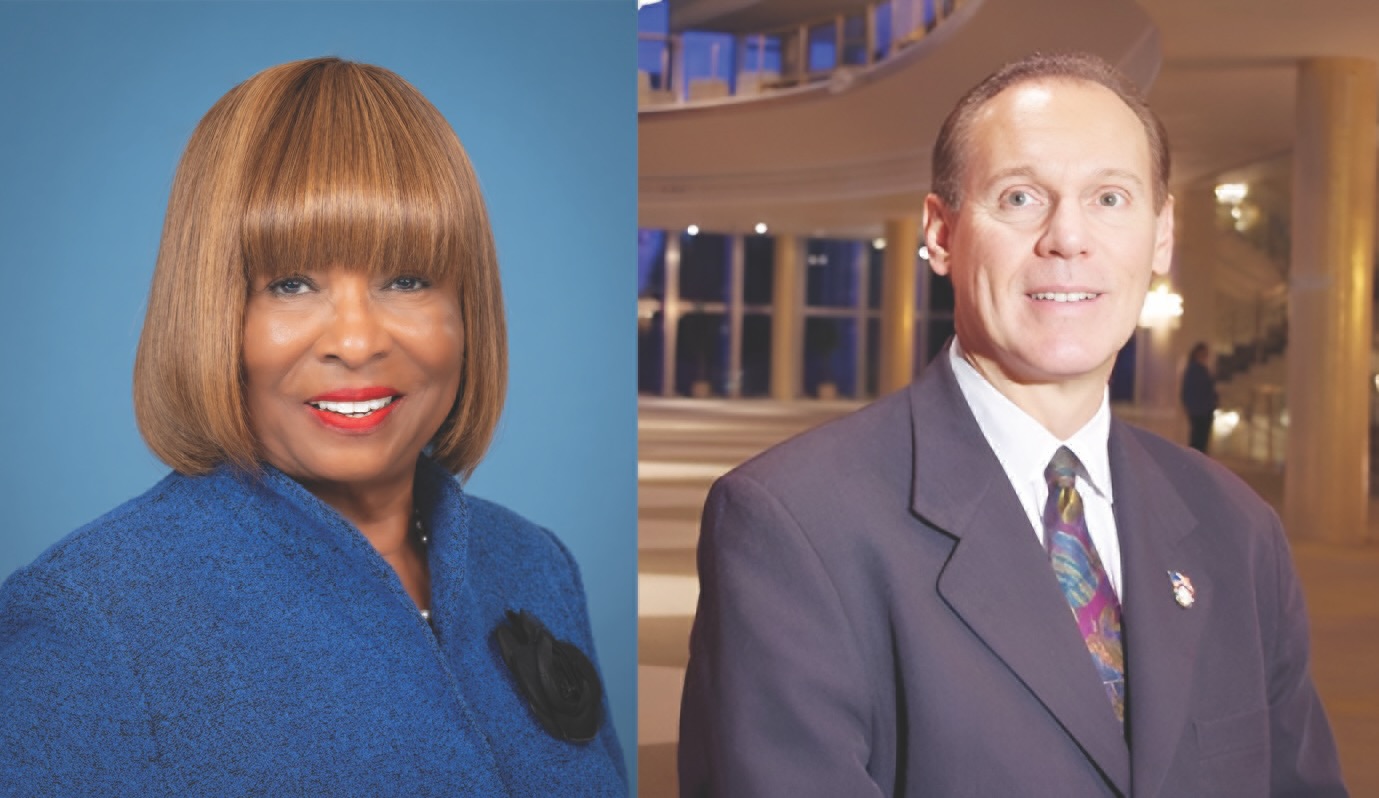By Sebastian Linan, Staff Reporter
Election Day on Nov. 5 is almost here and Carson residents could have a new mayor once all the ballots are counted – sort of. The race pits incumbent Mayor Lula Davis-Holmes against current City Councilmember and former mayor Jim Dear.
The Bulletin spoke with both candidates to learn more about their respective campaigns.
Davis-Holmes lauds development record
An alumna of CSUDH and a lifelong resident of Carson, Lula Davis-Holmes was first elected to the City Council in 2007, serving four terms until 2019. In 2020, she made history again by becoming the first Black female mayor of the city. Davis-Holmes said her election to Carson’s highest office was the culmination of all her years of work.
“Our residents were ready for a change,” Davis-Holms said during her brief interview with The Bulletin at her City Hall office. “They recognized all of the hard work I had done as a councilwoman and as a staff person.”
Affordable housing was one of Davis-Holmes principal development projects. In 2021, Davis-Holmes launched an initiative to create and support workforce housing. The program targeted households that earned too much to qualify for traditional affordable housing projects, according to a statement released by the city. The next year, Davis-Holmes cut the ribbon on Veterans Village – a 51-unit housing project intended for veterans, seniors, and low-income residents.
Dear hopes to pick up where he left off
A former teacher for the Los Angeles Unified School District, City Councilmember Jim Dear took the first steps of his political career in Washington, D.C., where he worked as a congressional intern. When he returned to LA, he joined the California Citizens Action League and lobbied on behalf of the nonprofit group Californians Against Waste.
Dear was first elected to the Carson City Council in 2001 and then mayor in 2004, serving four full terms until 2015. During his tenure, Dear launched new public safety initiatives, including a volunteer patrol program. His business development strategy saw the opening of several national chains in the city, including Cinemark Theatres, Buffalo Wild Wings, and Olive Garden. Dear also oversaw the founding of the Sculpture Garden at CSUDH.
All of these projects, Dear said, helped to transform Carson from a “bedroom community” and “industrial city” into a destination community.
Dear began a second stint as a councilman, but was recalled in 2016 for alleged misconduct, which he said were “100-percent false.” Dear was elected to the City Council once again in 2018. If re-elected to lead the city, Dear said he planned to resume his development strategy.
The blame game
Davis-Holmes and Dear both expressed sharp criticism for each other during their interviews with The Bulletin.
Davis-Holmes said developers only started to see Carson as a destination for new projects under her leadership. She said it would be a step backward for residents to seat Dear at the head of the City Council for another four-year bid.
“For the first time in the city of Carson, it is on the front of the LA Business Journal,” she said. “We never had that when he was the mayor, all we had was buffoonery.”
Davis-Holmes continued, drawing a parallel between her campaign and the U.S. presidential election.
“There was no facade, no streets improvement, none of that,” Davis-Holmes said. “Why would they look backwards? I say, I’m the Kamala Harris and he’s the Donald Trump of Carson. Who do you want: Donald Trump or Kamala?”
Dear shot back at Davis-Holmes’ own development record, accusing the mayor of mismanaging $222.9 million surplus in the city’s general reserve fund.
“The size of the reserve confirms that the city has been delaying many essential projects,” Dear said.
The former mayor also took issue with Davis-Holmes’ belief that she represents the voice of the people of Carson. He repeatedly called the perception of progress and camaraderie under her leadership a “facade.”
“She is creating a facade that she’s willing to work with her colleagues when she is not,” Dear said. “She is creating a facade of fairness when she is unfair. She is creating a facade of being nicey-nicey, kissy-kissy, when she is very mean.”

